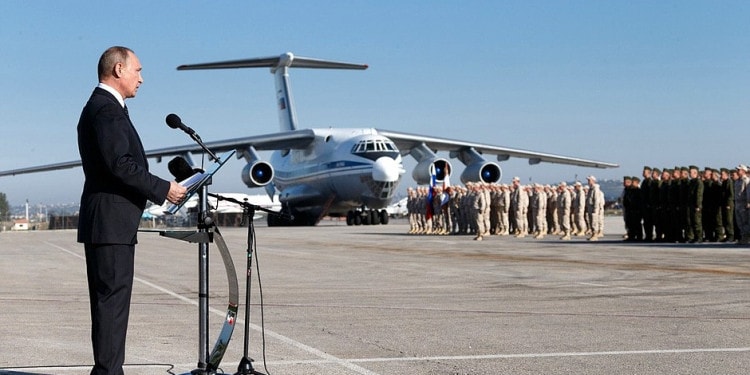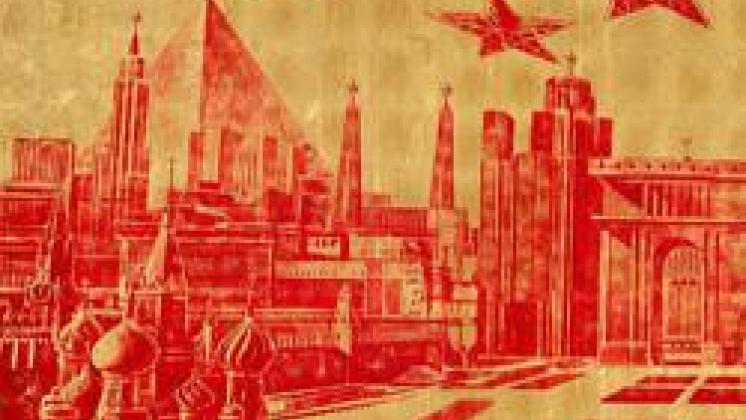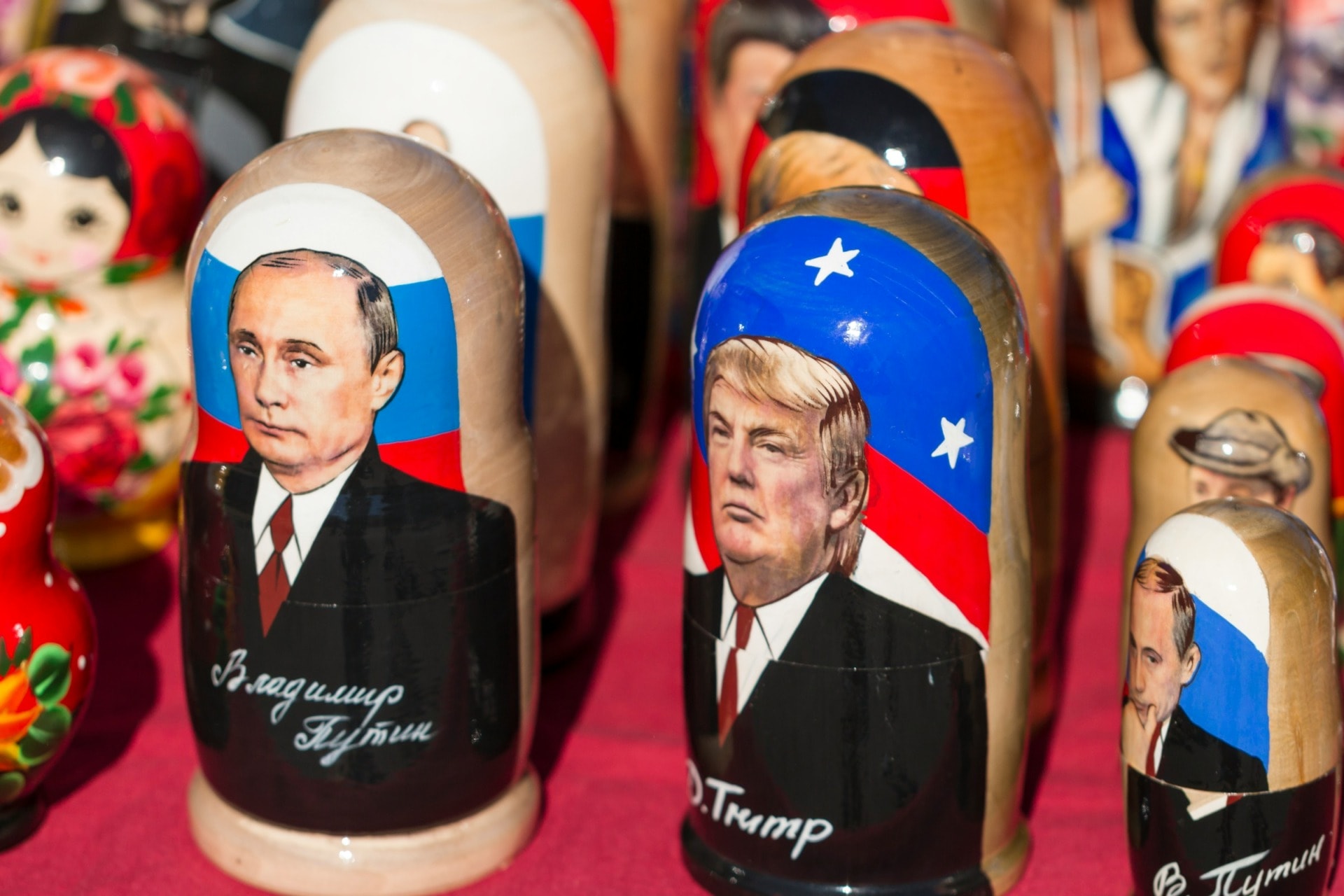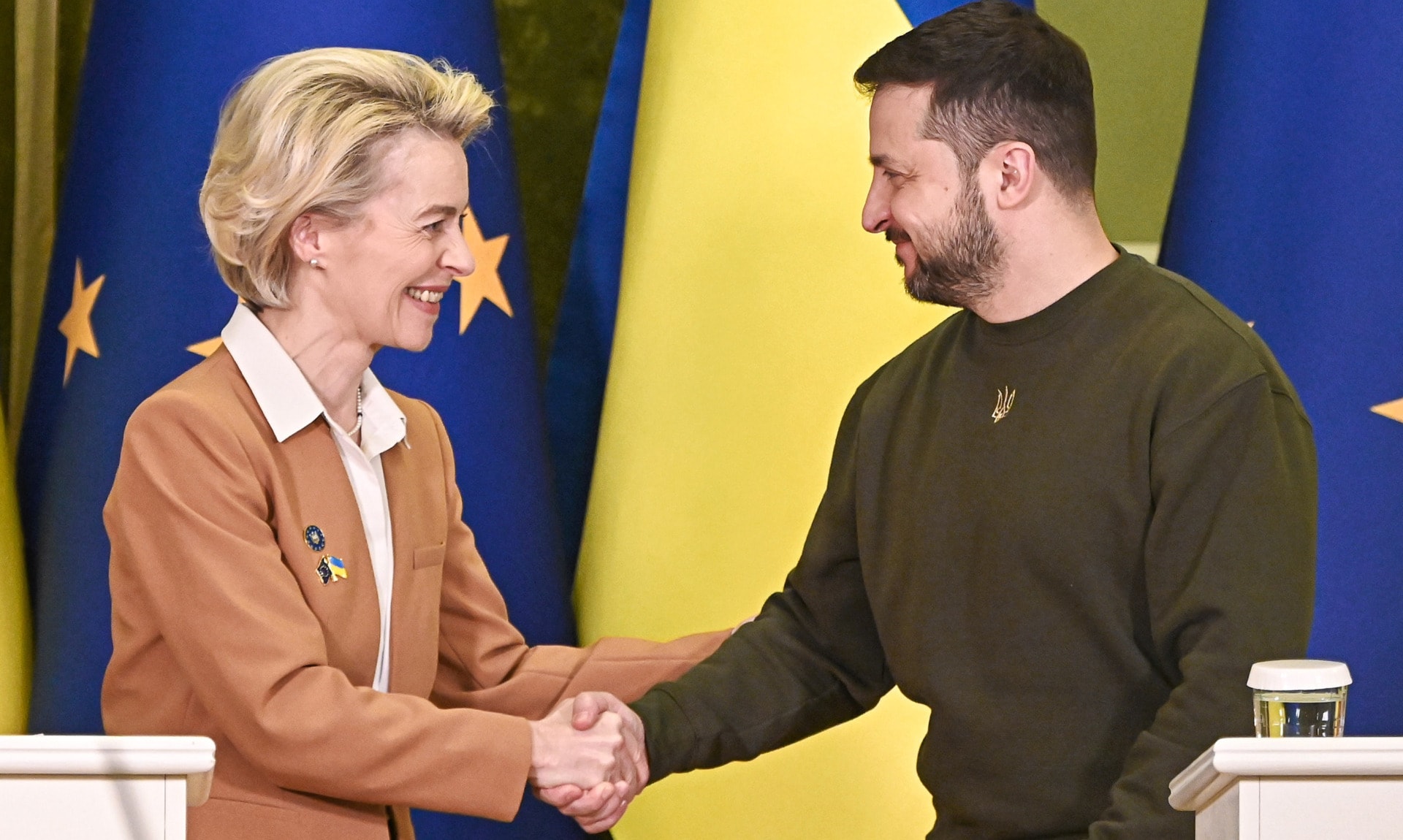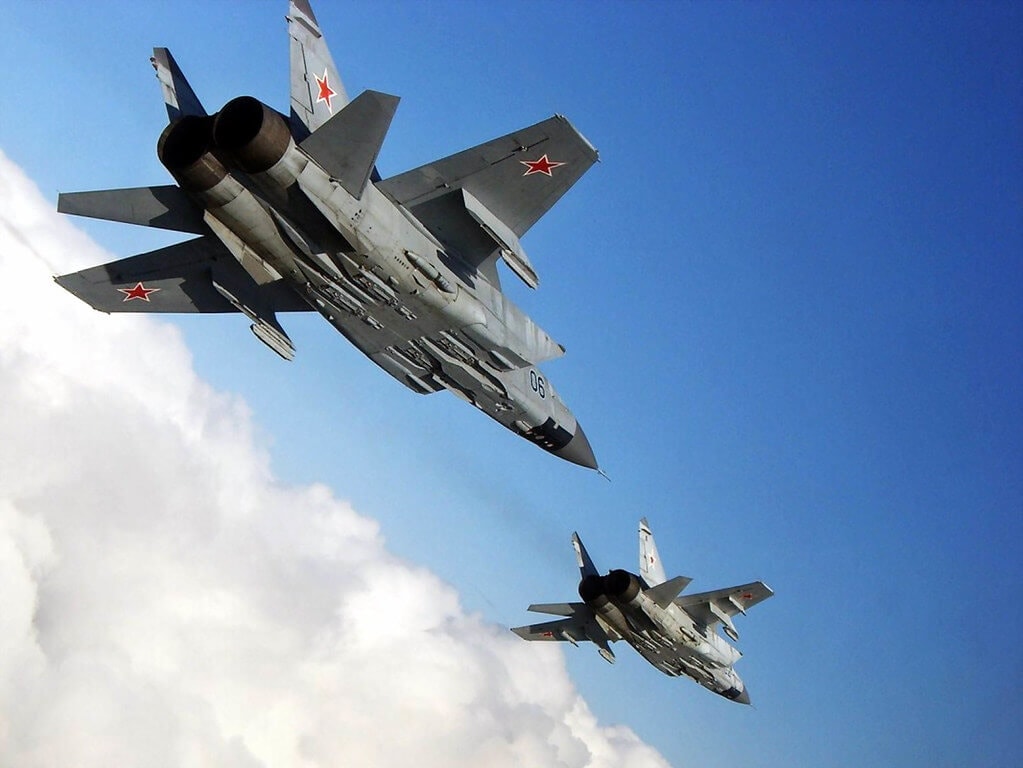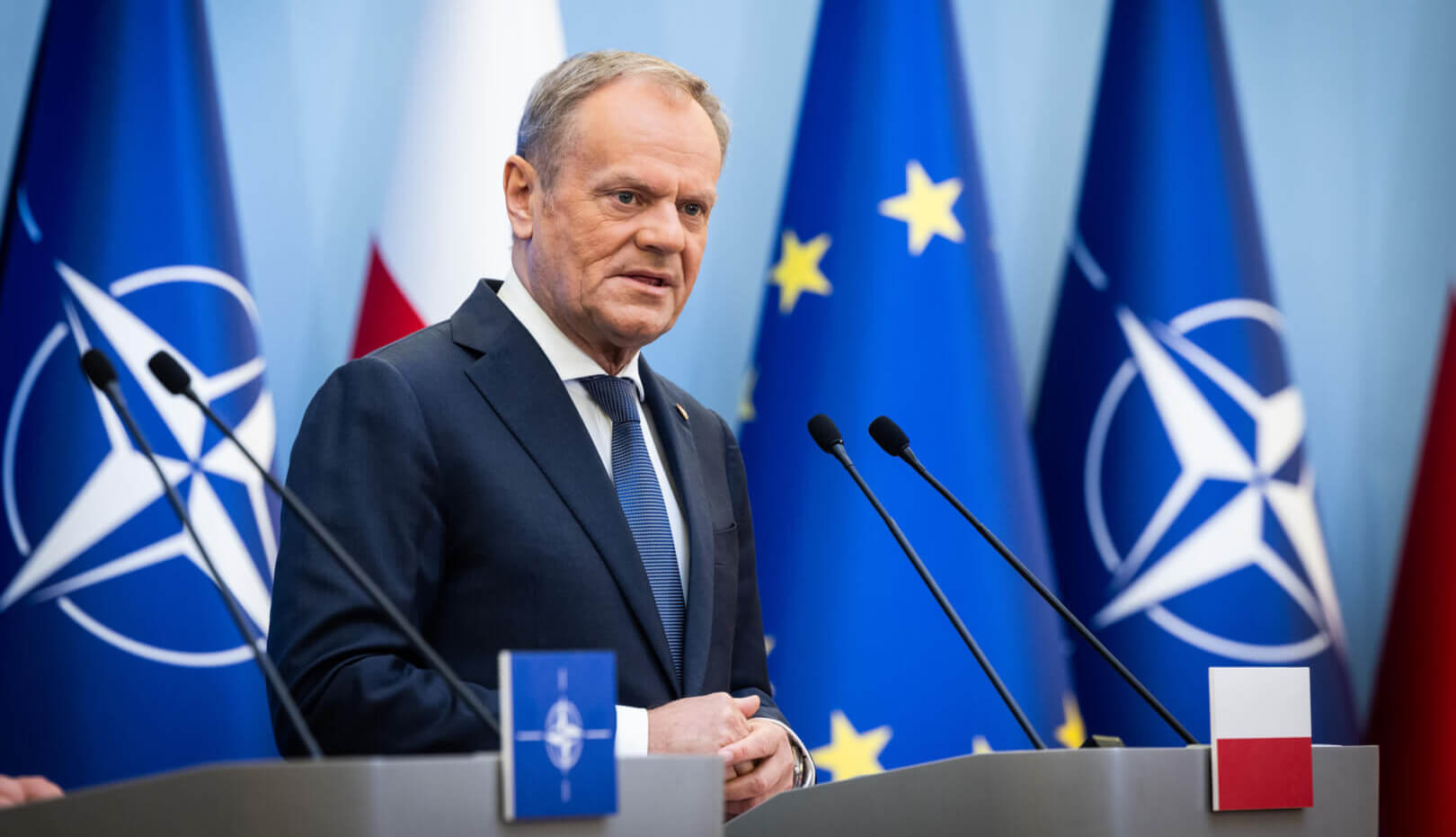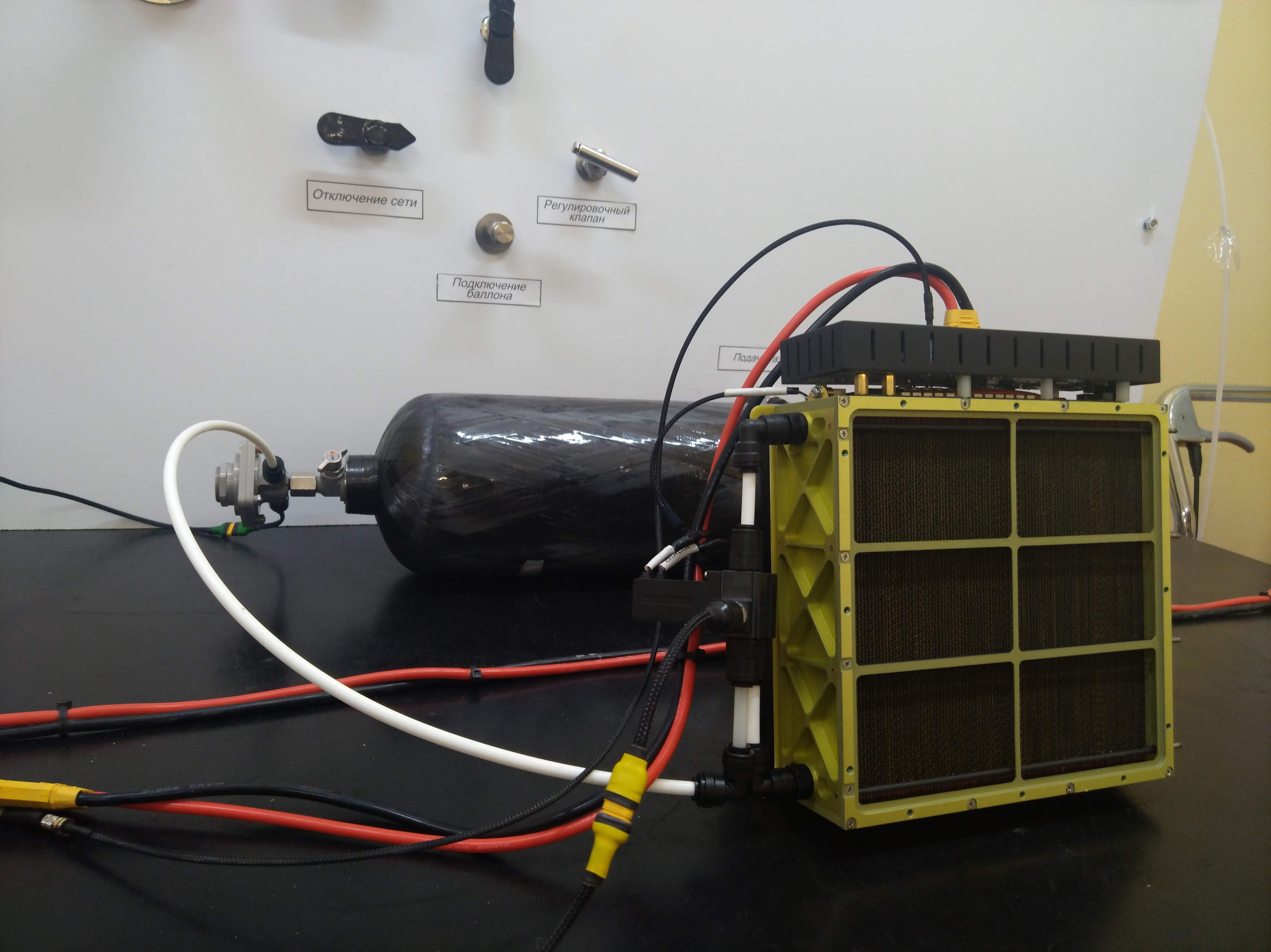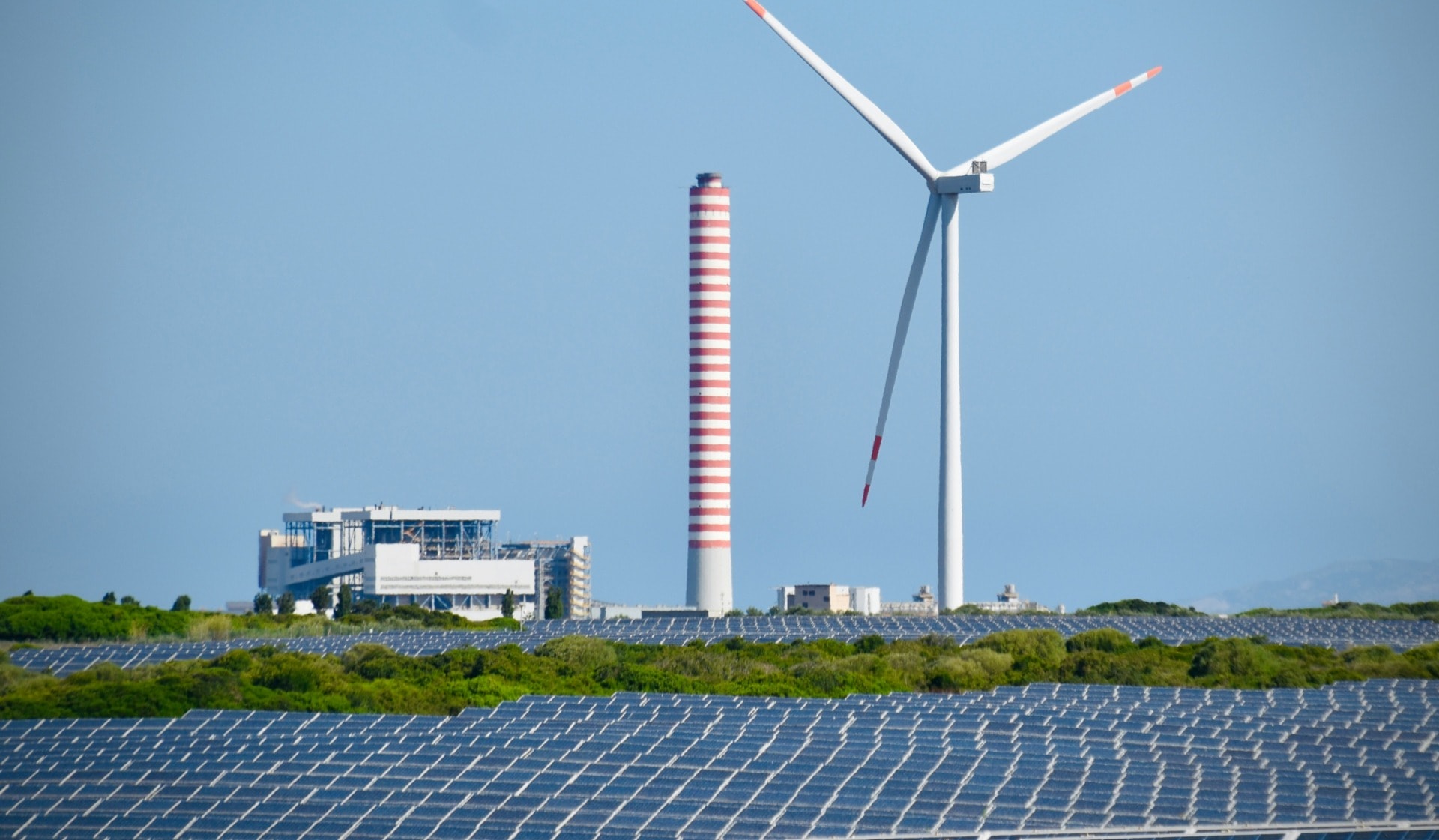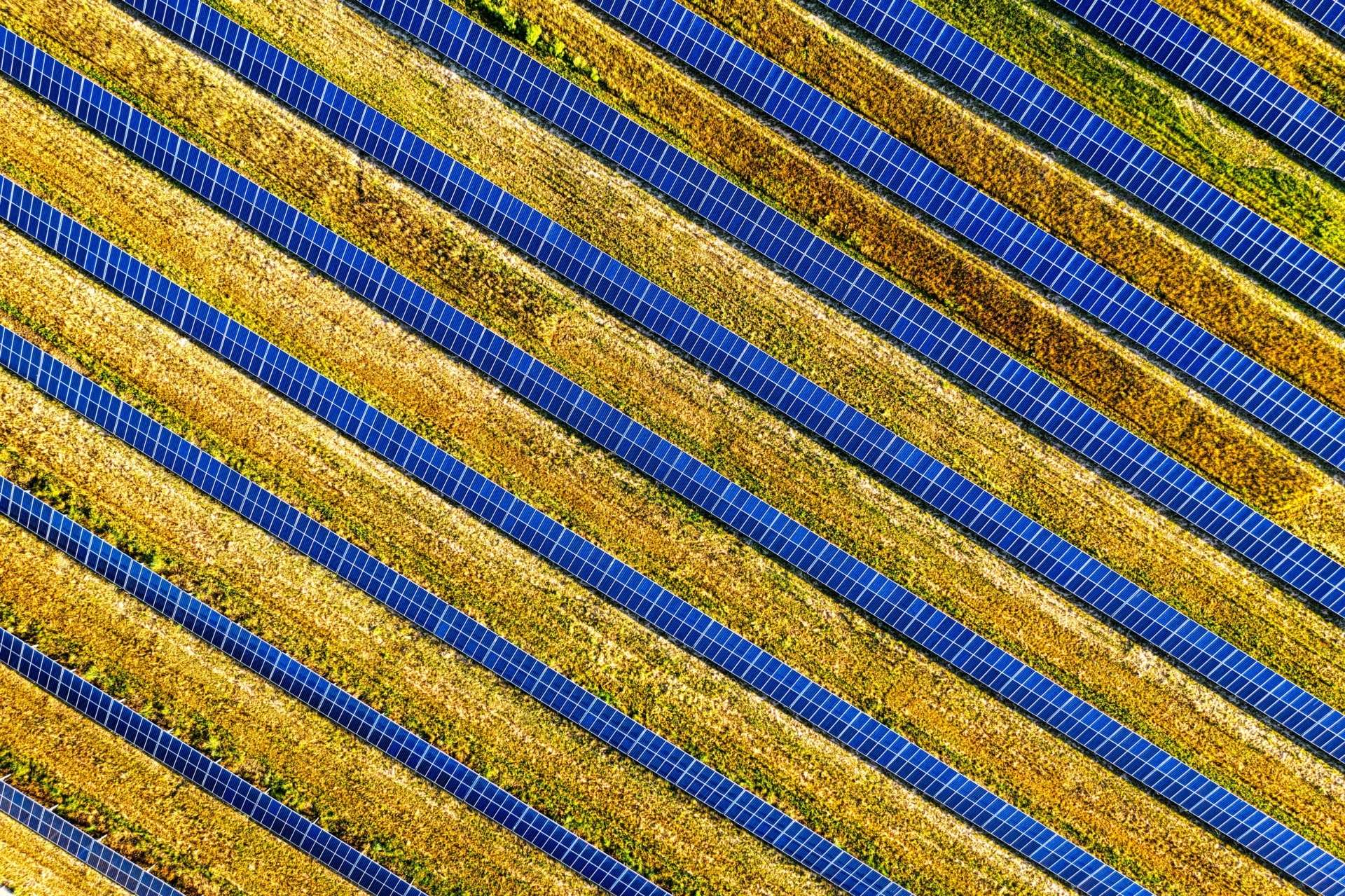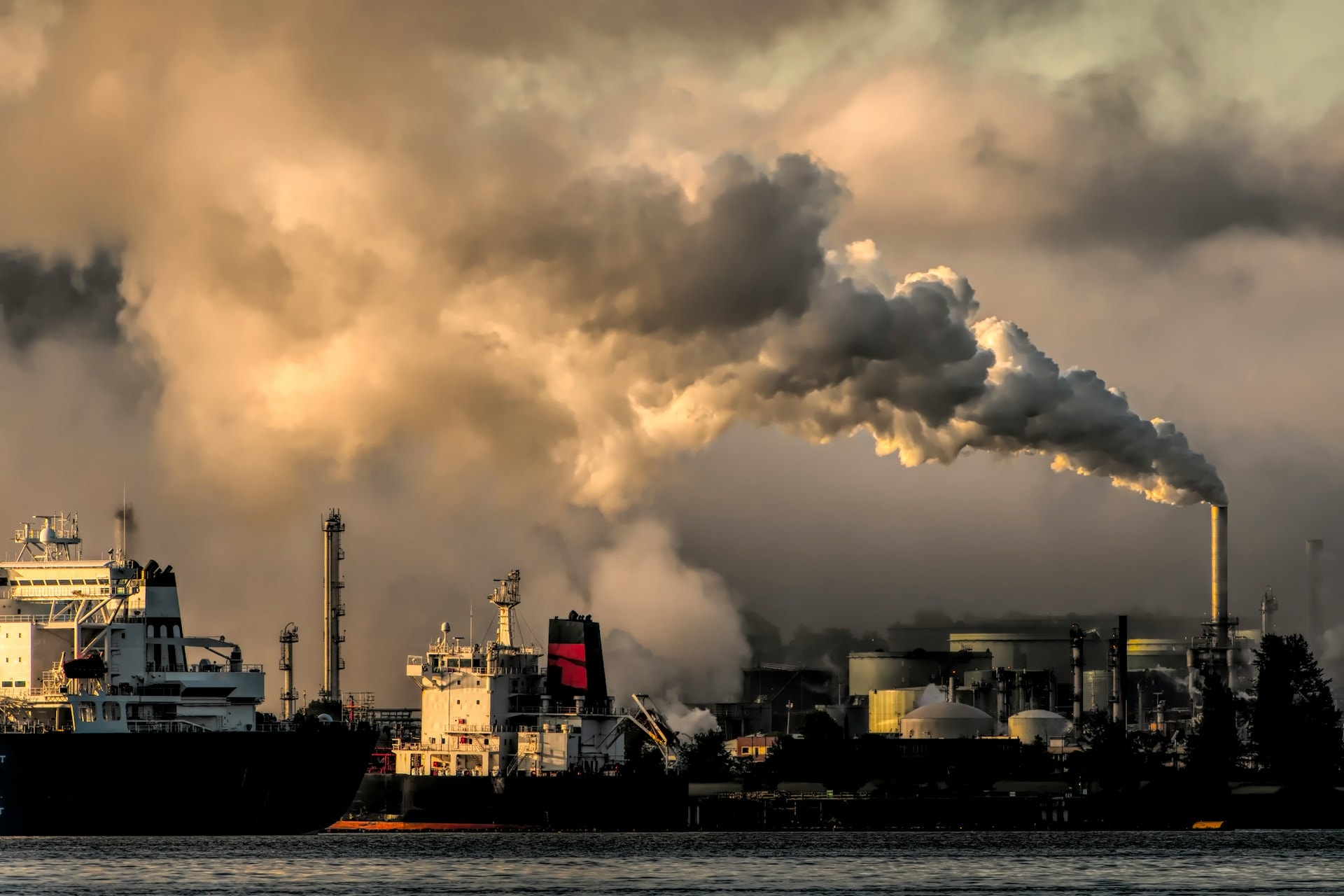Contrary to what many people think, Putin’s goal is not simply a matter of restoring the Soviet Union or the empire of the Tsars. It’s much more than that. And it is terrifying. Russia is an economic midget but it has chosen guns over butter and as a result, it is a military giant. With immense ambitions and a single overriding objective: establish Eurasia as a world power displacing America. The ideology driving Putin has a name: Eurasianism.
The idea is to kill off, once and for all liberalism which is viewed as “the greatest threat to the ethno-cultural survival of all the earth’s people”. Those are the words of the man behind Putin, his informal but very vocal ideologue, Alexander Dugin. Eurasianism, the Eurasia Party and the International Eurasian Movement are his brainchildren.
Eurasianism, a sulphurous combination of ideas drawn from metaphysics, symbolism, esoterism and racism. It has deep roots in Dugin’s bizarre ethnocentric view of History where Russia is placed at the center and the West in the periphery. Western liberalism is roundly rejected and the Russian people are elevated to the status of masters of the continent: Dugin argues they appeared at the dawn of Time and predate all other people. That is why they deserve to govern every other people on the Eurasian continent.
Dugin is more than just another controversial ultra-nationalist Russian. Over the past decade, he has exercised deep influence over Kremlin policies. As I write, we can now speak of a renewed Cold War against the West started by Putin.
The Growing Russian Threat to World Peace
Territorially immense and economically modest, Russia ranks GDP-wise behind Germany and Japan, no matter what source you take, whether the IMF, the World Bank or the CIA World Factbook. For lovers of futurology, each year, PricewaterhouseCoopers predicts the size of the largest economies in the world in the year 2050. It shows a dramatic shift in the global power balance. Right now the world economy is still dominated by the economies of Western countries: the USA, the United Kingdom, Germany, France, Italy and Canada are all in the current top 10 largest economies in the world.
But by 2050, even if all goes well, Russia will only barely make it in the world’s top ten powers. Yet it is considered today one of the three world mega-powers, courtesy of Putin’s invasion of Crimea.
The invasion of Crimea and Eastern Ukraine was a turning point. From that moment, Putin never again entertained the idea of lifting Russia’s economy out of the doldrums, diversifying it away from its suffocating reliance on oil and gas. No need to. To maintain his power uncontested, all he has to do is keep the focus on fighting the West.
A few days ago, on 12 March 2019, with a vote in the European Parliament, another chapter in the Cold War was written. The resolution, calling on the EU to apply further sanctions if Russia continues to violate international law (text here), was adopted by 402 votes to 163, with 89 abstentions. The resolution made it clear that closer relations with Russia cannot take place unless Russia fully implements the so-called Minsk agreements to end the war in eastern Ukraine and starts respecting international law. A review of the current Partnership and Cooperation Agreement (PCA) was also demanded.
Selective engagements with Russia could be envisaged only in the case of global challenges such as climate change, energy security, digitalisation, artificial intelligence and the fight against terrorism.
For Americans familiar with Putin’s interferences in the 2016 Presidential elections, the list of grievances aired by the EU Parliament may come as surprisingly long. Here it is, in no particular order:
- Russia’s intervention in Syria;
- interference in countries such as Libya and the Central African Republic;
- continuous aggressive action in Ukraine;
- support for anti-EU parties and far-right movements and meddling in political elections in Europe (with an implicit reference to the recent discovery that the Italian extreme right-wing leader Salvini is the recipient of some €3 million from Russia to sustain his anti-EU campaigns);
- Russia’s propaganda and disinformation campaigns;
- continuous support for authoritarian regimes and countries such as North Korea, Iran, Venezuela and Syria;
- violation of the airspace of EU states, in particular in the Baltic Sea region, where territorial waters and the airspace have been repeatedly breached;
- Russia’s support to organisations and political forces like those opposing the Prespa Agreement that has resolved the long-standing dispute on the name between the former Yugoslav Republic of Macedonia and Greece;
- Russia’s illegal financial activities and money laundering that destabilizes the European banking system; .
- violating human rights at home.
In addition, the EU parliamentarians made a couple of specific demands. Judging EU‘s response to Russia’s propaganda and disinformation campaigns as insufficient, in particular before the European elections in May 2019, they called for an increase in funding and human resources for the EU‘s East Stratcom Task Force (established in 2015 to counter Russia’s disinformation campaigns). The hundreds of billions of euros being laundered through the EU every year, seen as a threat to European security and stability, led to the demand that EU countries with ‘golden visa/passport’ programmes should end the practice of granting them to benefit Russian oligarchs.
So who is Alexander Dugin, the man shaping Kremlin policies?
Putin’s Guru: Alexander Dugin
Dugin was born in 1962 in St Petersburg, also Putin’s native town. They both have close links to the KGB, Putin as a former KGB agent, Dugin as the son of a KGB general. Dugin’s mother had a Ph.D. in philosophy – one wonders how that marriage worked out but no doubt she passed on to her son a fascination for symbolism and esoterism.
Dugin has also been well positioned to influence Putin through his relationship as a former adviser to Sergei Naryshkin, a key member of Vladimir Putin’s United Russia party. Naryshkin was appointed Russian foreign intelligence chief in 2016. Like most powerful men in Russia, Naryshkin has direct ties to Putin going back to their youth when they were fellow students in a KGB Higher School group.
Dugin’s influence however is not just based on a friendship with Naryshkin. Dugin, a prolific writer, established his own presence on radio, TV and online with the website geopolitica.ru. He has created many journals, a publishing house, Arktogaia, and founded in 1998 the New University project to spread his ideas far and wide.
Fiercely opposed to the liberal direction taken by the Russian elite in the 1990s, Dugin was always a strong supporter of Putin’s policies. And the main instigator of the fight against America. Most importantly, Dugin is the founder of the Eurasia Party and leader of the International Eurasian Movement.
Eurasianism recently led to the creation of a new economic and political alliance on the EU model: The Eurasian Economic Union founded in January 2015, consisting of Armenia, Belarus, Kazakhstan, Kyrgyzstan, the Russian Federation plus Moldova as an observer member, all previous members of the Soviet Union. But the Eurasian Economic Union so far appears to be little more than a very limited customs unions that often breaks down in bureaucratic squabbles between the members, all autocratic countries.
Yet Dugin and Eurasianism matter. His books are required reading for Russian generals, as the Daily Beast recently reported. More specifically: his seminal work, The Foundations of Geopolitics, in which he promotes the idea of a vast Eurasian empire to undermine America is required reading at the General Staff Academy for every Russian military officer above the rank of colonel.
A key to understanding Dugin is to see who are the thinkers that most influenced him.
We know that his work as a translator brought him in close intellectual contact with at least two well-known West-European extremist thinkers whose works he translated in Russian (Dugin is a proficient linguist): René Guénon, a Frenchman (1886-1951) and Julius Evola, an Italian (1898-1974).
Guénon was a religious traditionalist French intellectual immersed in metaphysics, esoterism and symbolism, also known as Abd al-Wāḥid Yaḥyá when he converted to Islam and went to live in Egypt (where he died). Evola, a prolific esoteric author, was considered a pillar of neo-fascist thought. His positions were radical to the extreme: anti-egalitarian, anti-liberal, anti-democratic, antipopular and racist. While he wasn’t much appreciated by Mussolini’s regime that feared his extremism, today he is very popular with alt-right movements like Spencer’s and Steve Bannon’s.
Evola romanticized war and believed not in evolution but in a reverse process of involution, whereby man is not derived from the ape but the ape from man. He thought Nordic Europeans were the most valuable race.
In addition, in a recent interview with the Canadian libertarian journalist Lauren Southern, Dugin mentioned close intellectual ties to the French philosopher Alain de Benoist (born 1943), a man opposed to Christianity, the United States, free markets, neoliberalism, democracy, and egalitarianism. And also, like Evola, a favorite of the American alt-right movement. Though some of Benoist’s views, one presumes, would not be to their taste. While he does oppose Arab immigration, he supports ties with Islamic culture and (unlike Jean-Marie Le Pen) he is not anti-semitic: he favors ethnopluralism.
This openness to other cultures (in the sense that other cultures should be allowed to develop independently) is something Dugin shares. And it is probably the only attractive element in an otherwise dark and twisted worldview.
These are the people who helped shape Dugin’s thoughts and guide his battle against liberalism and democracy. And, consequently, Putin’s.
In the Video: Dugin on How Liberalism Undermines Collective Identity (Lauren Southern interviews, part 2, June 2018)
Note in this video interview, Dugin’s argument about “collective identity” vs. individual identity: It is astonishingly misleading. To argue that liberalism denies “collective identity” and that is therefore in the wrong betrays a total misperception of what liberalism is really about. Liberalism sees society as a series of “collective identities”: There is an LGBT “collective identity”, a feminist collective, a Black American collective etc. In the liberal worldview, no single “collective identity” can be seen as more valuable than the others or should be done away with.
All “collective identities” are equally valuable and deserve respect. Which is why homosexuals are free and respected in the West, and pursued and jailed in Dugin’s Eurasia and Putin’s Russia.
His ideas resonate in the “liberal” West, certainly in Italy where he regularly publishes his books and even in America. Steve Bannon is a fan and shares with him the goal of reviving the nation-state and fighting the European Union. As early as 2014, Bannon was telling an audience of Catholic thinkers at the Vatican: “I happen to think that the individual sovereignty of a country is a good thing and a strong thing. Putin is standing up for traditional institutions, and he’s trying to do it in a form of nationalism.”
Eurasianism: The Political Platform
To read the political platform of the Eurasian Movement is an eye-opener. The platform concludes with a clear call to war: “the Eurasian Movement is hereby formed to bring hell to the existing Atlanticist world order” – meaning America.
The platform starts off by describing in detail the worldview on which it is based:
“There are two main Civilizational rivals in this world: the land-based Eurasian countries (historically within the “great space” of the Russian Empire and former Soviet Union) and sea-based America (the undisputed champion of liberal Anglo-Saxon civilization); while the former represents everything which is Traditional and yet also Progressive, pre-modern and futurist, multipolar and just – the latter represents everything which is anti-Traditional, modern, Liberal, Capitalist, unipolar, exploitative, backward and decadent.”
Yes, it looks pretty bad for our American friends. The “Globalization under American control” is nothing less than “a stealthy and highly specialized genocidal scheme which, unlike all other systems of genocide, deprives entire peoples of their true identities and thus cancels out – yes, exterminates! – the inherent ethno-cultural dignity of every precious and irreplaceable segment of humanity”. The worst genocide of all!
The Eurasian Movement won’t remain idle, it “ must work toward the creation of a Global Revolutionary Alliance of diverse individuals, groups, and states – i.e. an international coalition of political forces – which are nevertheless totally united in their conviction that American liberal hegemony (i.e. Atlanticism) is the greatest Evil in the world today.” But ultimately, the future of the world is in Russian hands:
“…only the Russian People have been virile enough to liberate all Eurasians from the countless genocidal schemes of both East and West – of both the telluric (land-based) powers and the thalassocratic (sea-based) powers, of non-Aryan and Aryan national chauvinists alike; thus we seek to foster and augment the dominant role of Russia in world affairs by any means possible.”
Russians are the beginning and the end of it all:
“The long march of history, from our earliest Hyperborean roots to the present day, confirms that it is only the Russian People who possess the spiritual and cultural purity, hence the collective virility required to produce a future binding Eurasian State and supra-national Union for those who have traditionally comprised the peoples of Eurasia”
The capital will be Moscow “forever” and “The official language of communication among all union member states shall forever be: Russian; all other Eurasian languages will be provided official minority status.”
Fortunately, Eurasianism is opposed to “any form of eugenics” and is environmentally conscious, it is “dedicated to the ecological well-being of the earth and its people, therefore we support the further development and implementation of renewable “green” energy sources”
But homosexuality and any kind of sexual diversity are condemned:
“Patriarchy is the only natural structure of authority for the Eurasian Civilization and the traditional heterosexual family unit is the natural foundation of Eurasian society reflecting the higher laws of Nature and based upon the sacrosanct union (i.e. marriage) which binds together a man and a woman (husband and wife) both spiritually and physically”
America, for Eurasianism, is the greatest Evil Power.
If all of this sounds excessive, well, it is. Dugin’s rhetoric might be a little hard to take for us non-Russians, but we need to remember that his kind of thinking is proving to be Putin’s guiding light. Extremely dangerous for the whole world, not just the Americans.
Note how this leaves out Western Europe. So what happens to Europe from a “Eurasian” standpoint?
Dugin mocks Europeans as Euro-monkeys, Eurasia must look East, not West. For Alexander Verkhovsky, director of Russian SOVA, a Moscow-based NGO monitoring ultra-nationalist groups, Dugin’s theory “often sounds like a pretty fascist approach” – particularly the idea of creating some new cross-cultural nation of Slavs and Turkish people built on anti-Atlantic, traditional ideology. Dugin has often called for a war in Ukraine and his calls have resonated with many Russian nationalists who then joined the insurgencies in Eastern Ukraine.
What Next for Eurasianism?
The future of Eurasianism may not be as bright as Dugin hopes.
To begin with, the Eurasian Economic Union he helped create was essentially stillborn. It consists of too few countries to satisfy Dugin’s Eurasian ambitions. Furthermore, it is withering in the hand of autocracy-driven bureaucrats.
 Second, Dugin may have dug Eurasianism’s grave all by himself with his latest book, Putin vs. Putin.
Second, Dugin may have dug Eurasianism’s grave all by himself with his latest book, Putin vs. Putin.
In presenting his book, Dugin has argued that Putin “stands at a crossroads”. In his presidency so far, Putin has, he says, “attempted to balance two opposing sides of his political nature: one side is a liberal democrat who seeks to adopt Western-style reforms in Russia and maintain good relations with the United States and Europe, and the other is a Russian patriot who wishes to preserve Russia’s traditions and reassert her role as one of the great powers of the world.”
In reasserting Russia’s role as one of the world’s great powers, Dugin argues that Putin has been a success. But, he says, “this balancing act cannot go on if Putin wishes to enjoy continuing popular support among the Russian people.”
In his view, Putin hasn’t done enough. He calls on him to “act to preserve Russia’s unique identity and sovereignty in the face of increasing challenges, both from Russian liberals at home and from foreign powers.”
This is a logical next step for Dugin but may not be a politically wise one for Putin.
Going all the way with Eurasianism at home, including, most crucially, the anti-capitalist elements of Dugin’s ideology, would eventually cause Russian oligarchs to withdraw their support from Putin.
And that is something Putin cannot politically afford.
So, yes, Dugin is dangerous and Putin’s military efforts are worrying, but like all extreme ideologies, Dugin’s Eurasianism may well be hitting a wall.
Editors Note: The opinions expressed here by Impakter.com columnists are their own, not those of Impakter.com Featured Photo Credit: President Putin visiting Khmeimim airforce base in Syria December 2018 Source:President of Russia events


